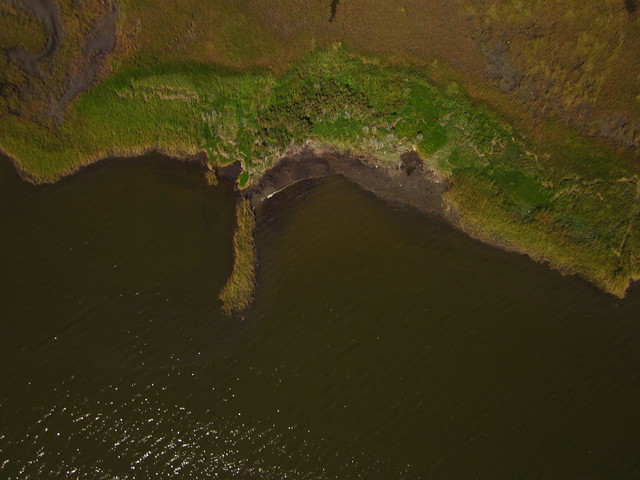It’s the anniversary of the Deepwater Horizon/Macondo/BP blowout disaster catastrophe oil spill. I don’t know how much coverage it gets outside the Gulf Coast, but oil is still percolating up in marshes here, and it’s very discouraging.
Generally I have supported science and the scientific worldview, but this debacle has shown how science is just a tool to be used and abused by the powerful.
We should know exactly what happened a year ago, and why. We don’t. We should know how much oil flowed out into the Gulf. We don’t. We should know how bad the environmental consequences are. We don’t.
Our ignorance is appalling.
A while back I saw conflicting reports on the safety of seafood from the Gulf. One scientist sounded cautionary notes, while another scientist gave the all clear. They were funded by opposing sides in the ongoing legal battles that have emerged from this catastrophe. The best science money can buy! I wish I’d clipped the article so I could cite it properly now, but at the time I was just too depressed.
Since I can’t even cite my sources, you’d probably do better to look elsewhere for informed commentary. I highly recommend this brand new article by John Clark:
Life in Louisiana, and on Earth, Struggles to Survive
But what, in reality, have the dominant extractive and petrochemical industries, and especially oil, brought to Louisiana? We are one of the poorest states. We are one of the least educated states. We are one of the unhealthiest states. We are one of the states in which government is most abjectly subservient to industry. We are one of the states most scarred by rampant corruption. We are one of the most environmentally devastated states. And now, the oil industry has damaged coastal wetlands and Gulf ecosystems, quite possibly for a considerable period into the future, in the worst marine oil disaster in history.
It’s enough to make anyone crazy mad.
I suppose I should make the connection: It’s stuff like this that fires me up to work on a project like the greenway. Active transportation is one way to reduce consumption of oil. It’s a very small sling against a very big giant. I’m not trying to put myself up on a pedestal; I’m just saying, do something. You’ll feel better, and it might just make a difference.
Oh, and by the way, some of my best friends are scientists.
IMG_6994 sample image for map stitching – aerial photography – / cesar harada / CC BY-NC-SA 2.0
Discover more from b.rox
Subscribe to get the latest posts sent to your email.

No shortage of “Anniversary Of The Spill” coverage these last 24 hours. I’ve been tuning in with a jaundiced ear and, alternately, tuning out entirely. Does anyone know anything? Is anyone saying anything?
“It hasn’t been easy,” says the genial anchor, “but a year after the spill, things are finally returning to normal for the people of the Gulf!”
“Look,” says the big oil spokesperson, “what the American People want is transparency, and transparency is our commitment to the American People because transparency is what they deserve!”
“We have to start drilling, or else BP won’t have enough money to compensate the shrimpers!” (Woman in Biloxi.)
We’re appallingly ignorant, as you say. I’m at a loss to think what it will take to wake us up.
While she hasn’t done much in the way of ‘one-year-later’ coverage, Rachel Maddow has for at least a week been hot on the subject of the Gov’t. issuing permits for more deep-water drilling in the Gulf in the face of the clear evidence that blow-out preventers do not prevent blow-outs. She even invited the director of the fed agency that issues the permits on her show for an interview, which he accepted and through which he showed his arrogance and belligerence toward the whole issue – not to mention toward the people of the Gulf Coast. An interesting aside is that within a day or two of the interview, the agency ceased issuing press reports relative to issuance of new permits.